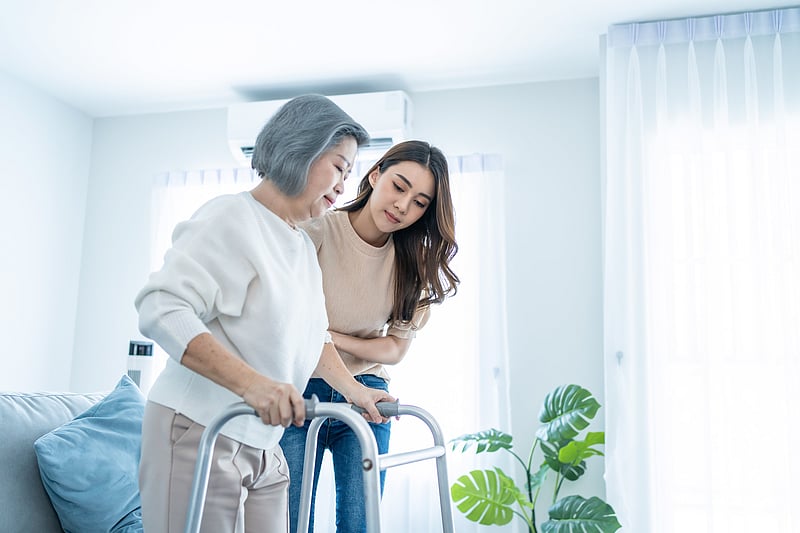Get Healthy!

- Posted July 19, 2023
Women With Severe Stroke Less Likely Than Men to Be Sent to Stroke Centers
Despite worse symptoms and living about the same distance from comprehensive stroke centers, women with a severe type of stroke are less likely to be sent to these facilities than men, a new study reveals.
Researchers at the University of Texas Health Science Center at Houston found women with what's called a large vessel occlusion acute ischemic stroke were about 9% less likely than men to be routed to comprehensive stroke centers.
These strokes happen when a major artery in the brain is blocked. They account for an estimated 24% to 46% of ischemic strokes, according to the study authors.
"Timely treatment of stroke is incredibly important; the faster a doctor is able to get the vessel open, the better the patient's chance of having a good outcome. These routing systems in hospitals are designed to get patients to the best care as quickly as possible,"said study co-author Dr. Sunil Sheth, an associate professor of neurology.
"We don't know exactly why women were less likely than men to be routed to comprehensive stroke centers, but we do know that gender is an implicit bias,"Sheth continued in a university news release. "Getting to the granular level of what went into a hospital's routing decision will be very important for future studies."
For the study, the researchers used data on patients with large vessel occlusion acute ischemic stroke from a multi-hospital registry for the greater Houston area from January 2019 to June 2020.
The investigators compared prehospital routing of men and women to centers capable of performing endovascular therapy to remove the artery-clogging clot.
Among 503 patients, about 46% were women. In all, 82% of patients were routed to comprehensive stroke centers.
Compared with men, women with these strokes were older, average age 73 versus age 65. They also had a greater National Institutes of Health Stroke Scale (NIHSS) score, 14 compared to 12. That means their symptoms were worse.
"The greater NIHSS score in women may be partially attributed to their older age, as age itself is a known contributing factor to sex differences in stroke severity,"said study co-author Youngran Kim, an assistant professor of management, policy, and community health at UTHealth Houston School of Public Health.
"Moreover, elderly women are more likely to live alone and experience social isolation, which can result in delayed recognition of stroke symptoms and subsequent delays in seeking medical attention,"Kim added.
Patients living within a 10-mile distance to the nearest comprehensive stroke center were 38% more likely to be routed to one, the study found.
Previous research has shown that women with ischemic stroke are less likely than men to receive the clot-busting intravenous tissue-plasminogen activator (tPA) treatment, the authors noted. They are also 33% more likely to be misdiagnosed with non-stroke related issues, such as headache or dizziness.
Stroke is the fifth-leading cause of death for women, according to the U.S. Centers for Disease Control and Prevention.
"Older age at onset and severe stroke in women, compounded by a higher likelihood of age-related risk factors, can contribute to the higher rate of death from stroke and higher risk for disability after stroke in women,"Kim said.
"Therefore, appropriate triage and prehospital routing can be even more critical for women," Kim added. "Whether large vessel occlusions in women are less likely to be identified using current screening tools due to older age, premorbidity, or nontraditional symptoms needs to be investigated."
The study was published July 18 in the Journal of the American Heart Association.
More information
The U.S. Centers for Disease Control and Prevention has more on stroke.
SOURCE: University of Texas Health Science Center at Houston, news release, July 18, 2023
